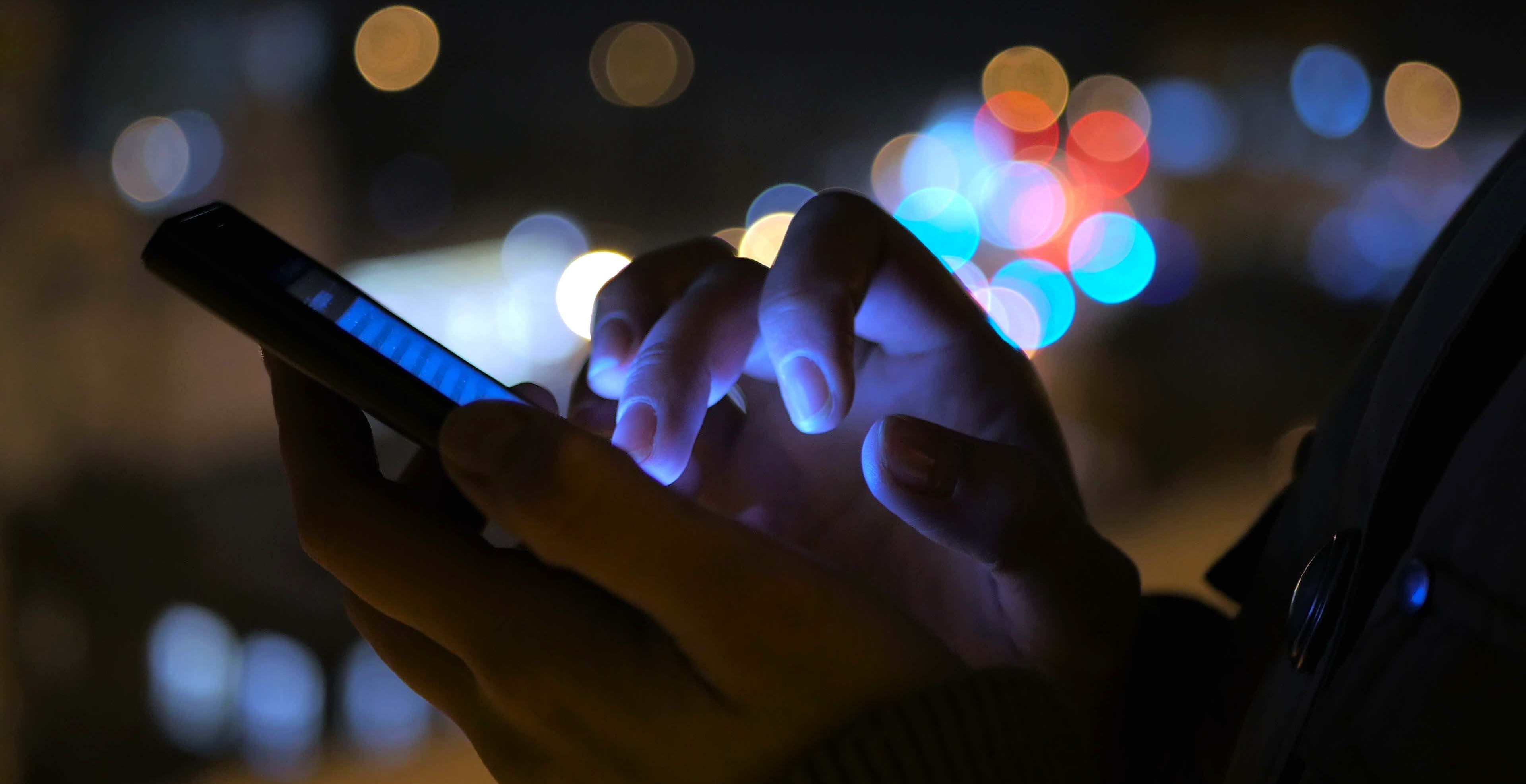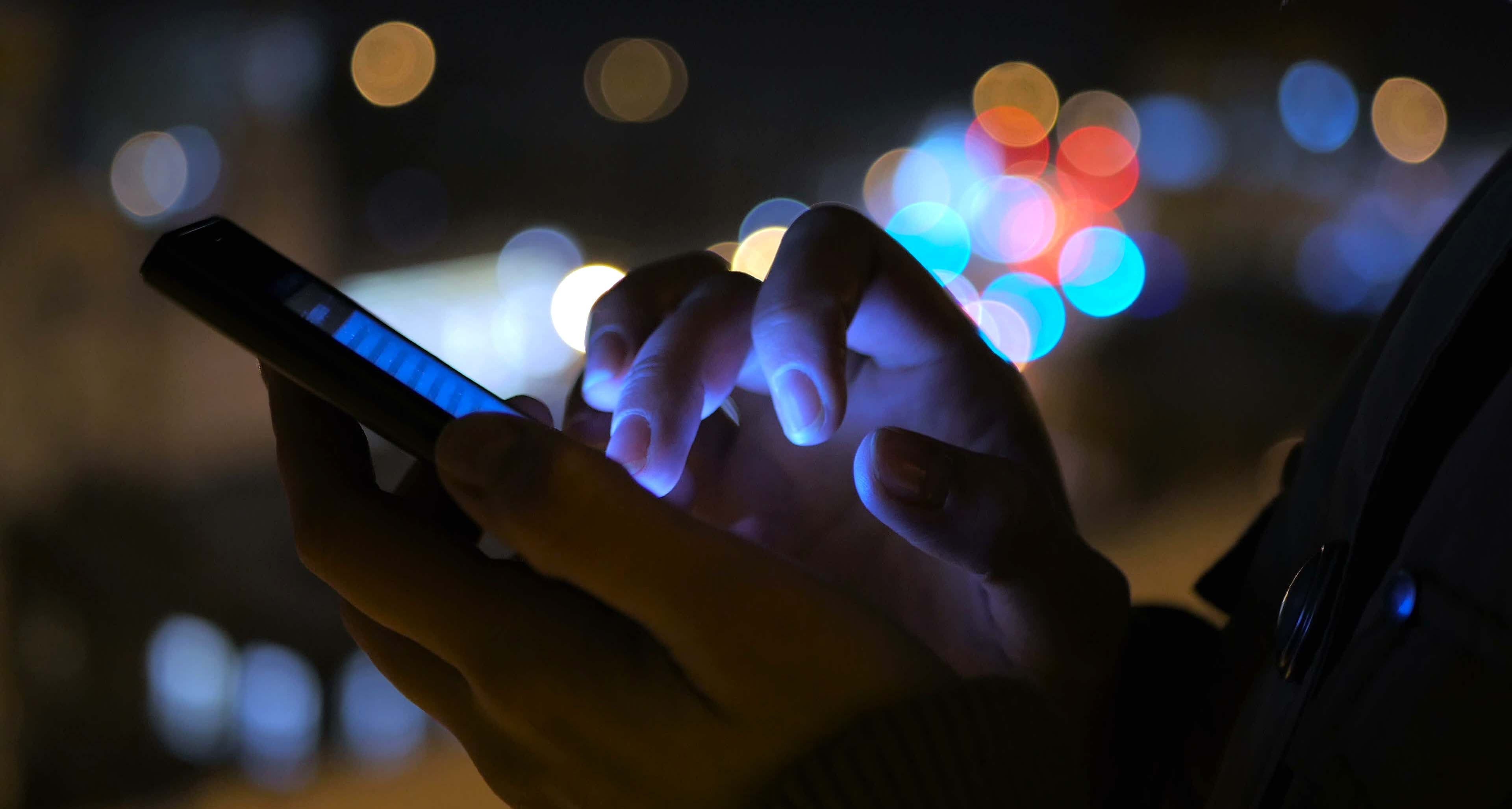

Checking texts, scrolling through Instagram, playing games – how many of us use our phones right before falling asleep? Even if we listen to music or watch a guided meditation video in bed, it’s probably on our phones. Most of us likely don’t even realize how much we use our phones, especially at bedtime -do any of us even have alarm clocks anymore?
But all that phone usage – and if you’re on your tablet or laptop or watching TV instead, you’re not off the hook – isn’t so good for our bodies, mainly our ability to get good-quality sleep. To understand why it all matters, we first have to know a little bit about how our bodies regulate themselves.
Circadian rhythms, according to the National Institute of General Medical Sciences (NIGMS), “are physical, mental, and behavioural changes that follow a daily cycle. They respond primarily to light and darkness in an organism's environment. Sleeping at night and being awake during the day is an example of a light-related circadian rhythm. Circadian rhythms are found in most living things, including animals, plants, and many tiny microbes.” Circadian rhythms help decide our sleep patterns, affect our eating habits and digestion, the release of hormones, and even our body temperature. And, NIGMS says, the main factor that influences circadian rhythms is daylight.
“Blue light [the light emitted from electronic devices like our phones and tablets] can trick the brain into thinking that it is daytime when it is actually night time and it interferes with the naturally occurring sleep-inducing hormone melatonin,” says Rebecca Lee, a registered nurse from New York City and the founder of natural health resource RemediesForMe.com.
“It basically prevents your brain from producing melatonin, as when you're exposed to blue light later at night, to your brain you may as well be standing in an open field at midday in the bright sun,” says Jamie Logie, a personal trainer, nutritionist, and health and wellness coach who runs the Regained Wellness blog and podcast. “Light helps control this circadian rhythm and with our 24-hour perpetual daylight and exposure to electronic screens, they don't allow our body to get into the proper cycle of the day.”
Both Lee and Logie say the best thing you can do for good sleep and regulated cycles is to avoid blue light exposure at night – that means putting away your devices at least an hour before going to bed, though a couple hours would be ideal.
“[Bedtime] is a time for relaxation, not stimulation,” Lee says.
However, we know that’s not a realistic fix for many people – a lot of us work late at night, for example, and simply can’t avoid screens before bed.
“If you do need to work with electronics there are a few things you can do,” Logie says. “The iPhone now has the night shift mode, which gives your phone a more natural glow, reducing the blue light. On your TV, you can switch it to the movie setting, as that also gives it reduced blue light. If you're using a laptop, there's a great program called f.lux, which naturally reduces the blue light from your screen as you get later in the day and gives it a more natural, reddish glow.”
Red light, according to a Harvard Health article, has the least power to alter circadian rhythms and affect melatonin production.
Lee, who uses the f.lux app on her phone and computer, too, has also switched out her light bulbs for ones that can change to a reddish-orange colour either automatically or manually.
“They are designed to not emit any blue light during the night,” she says. She has hers set to start changing colour at 6 p.m., and can control them with a user-friendly app. Keeping house lighting dim after sunset can help trigger melatonin production, Lee says.
She also recommends wearing amber-coloured glasses for a few hours before bedtime. “After wearing them, I start to feel sleepy and find that I am able to fall asleep faster.”
If you like falling asleep with the TV on, Lee suggests turning off the screen if possible, because even if the TV is turned away from you, light from the screen may still disrupt your sleep.
And when it is time for bed, Logie says, “you want to keep your room as dark as possible.”
